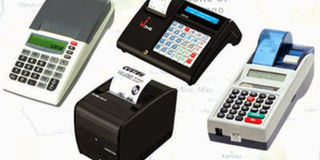Tanzania Parliament want use of electronic tax stamps extended to cement, edible oil and iron sheets

Parliament’s Budget Committee chairman, Mr Sillo Baran
Dar es Salaam. The Parliament told the government on Monday to extend the rollout of Electronic Tax Stamps (ETS) to more products in a deliberate bid to curb revenue loss through exercise duty.
Debating the government’s Sh36-trillion budget for the financial year 2021/22, the Parliament’s Budget Committee chairman, Mr Sillo Baran, said the ETS system was good because it enabled the government to use modern technology to obtain production data on a timely basis (real time) from manufacturers.
The move aids the government in curbing revenue leakages - and also to determine in advance the amount of tax to be paid as excise duty, value-added tax and income tax.
“….It helps the government to identify genuine products and fakes ones. It removes the possibility of cheating [on the right amount of tax to be paid] by some dishonest businesspeople….,” he said, noting however that the only challenge with the system was the high costs associated with the stamps.
He said with the benefits, the government was advising the government to see a possibility of extending ETS’ to other products like cement, edible oil and iron sheets.
“This committee is also advising the government to sit down with the contractor and find a way of reviewing the rates. The government must also put in place a strategy that will see the system remain in use when the current contract with the contractor expires,” he said.
In Tanzania, the government announced plans to adopt the Electronic Tax Stamps (ETS) system in June 2018 and the first phase was conducted on January 15, 2019 whereby stamps were installed on 19 companies that produce alcohol, wine and spirits.
Phase two of the project was rolled out on August 1, 2019 when ETS’ were stamped on sweetened flavored water and other non-alcoholic beverages, like energy and malt drinks and soda.
The third phase, which involved enrolling electronic stamps on fruit juices (including grape must), vegetable juices (under Heading 20.09), bottled drinking water, was conducted November 1, 2020.





